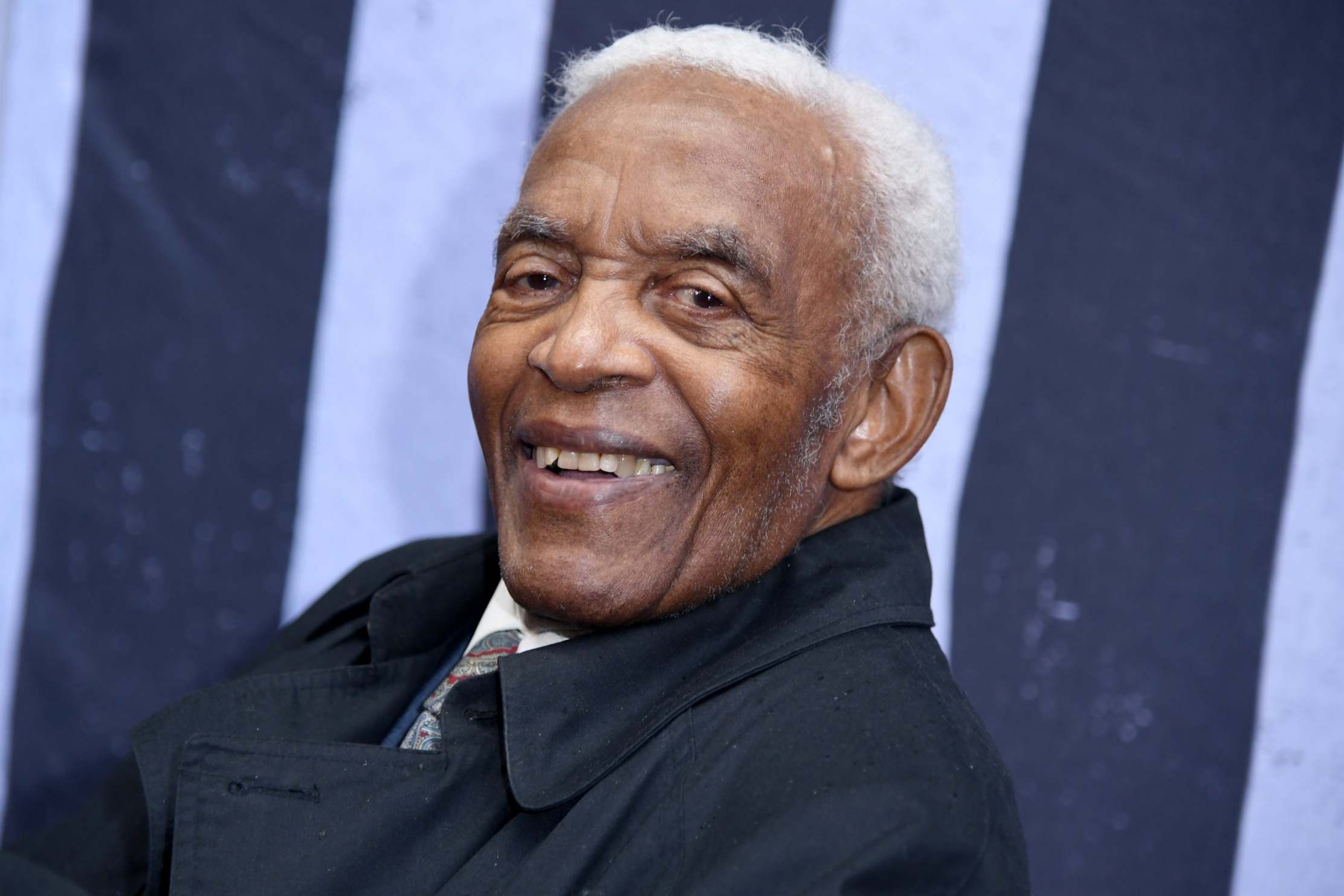Irving Burgie: Songwriter behind Day-O and other calypso hits
Burgie’s collaborations with Harry Belafonte helped to bring Caribbean sounds into the mainstream

The song was simple enough, opening with a distant, a cappella rumble from singer Harry Belafonte. But with its swinging percussion, yearning refrain about a dockworker finishing his night shift, and lyrics about a “beautiful bunch o’ ripe banana” and “deadly black tarantula,” the 1956 single “Day-O (The Banana Boat Song)” helped to launch a calypso craze around the world.
Adapted from a traditional Jamaican call-and-response tune, the song was in large part the creation of Irving Burgie, a half-Barbadian, New York-born songwriter who wrote or co-wrote more than 30 songs for Belafonte, drawing on Caribbean folk music for hits including “Jamaica Farewell” and “Island in the Sun”.
Burgie, who has died aged 95, also sang under the stage name Lord Burgess, penned a well-received off-Broadway musical and wrote the lyrics to Barbados’s national anthem.
Although he was surrounded by Caribbean folk music as a boy, Burgie began his music career singing German lieder and French and Italian arias. The American folk musical revival of the 1940s and 1950s led him to reconnect with Caribbean sounds, and he went on to adapt countless songs, from Trinidadian calypso to Jamaican mento. By the time he connected with Belafonte, he was being hailed as “the black Alan Lomax, a walking library of songs from the islands”, by the novelist and screenwriter William Attaway.
The trio united for Belafonte’s album Calypso, which spent 31 weeks atop the Billboard charts and is generally considered the first million-selling record by a single artist in the US. Eight of the album’s 11 songs were credited to Burgie, including “Jamaican Farewell”, which was later covered by Chuck Berry, Jimmy Buffett and Sam Cooke.
But it was the album’s opener, “Day-O”, that became an international sensation. The single reached No 5 on the US charts and spawned five Top 40 versions of the track by other artists within the next year.
An earlier rendition of “Day-O” was recorded by Trinidadian singer Edric Connor, under the name “Day Dah Light”, and Burgie said he wrote his version in 1954, inspired by chants of Jamaican dockworkers loading bananas. He, Belafonte and Attaway polished the song in a suite at the Waldorf Astoria hotel in Manhattan, New York, and all three men were listed as songwriters, with Burgie claiming primary credit in interviews.
The song was later sampled by singer Jason Derulo and rapper Lil Wayne, and covered by legions of artists in genres as varied as funk (George Clinton), go-go (Chuck Brown), rockabilly (Hasil Adkins) and dancehall (Shaggy). Astronauts on space shuttle Atlantis woke up to “Day-O” in space, and dinner-party guests in the 1988 movie Beetlejuice were forced, by ghosts, to join hands and dance along.
Irving Louis Burgie was born in Brooklyn in 1924. His father was a day labourer at a slaughterhouse, his mother a seamstress and domestic worker. Burgie played in a local drum-and-bugle corps but became seriously interested in music only during the Second World War, when he served in the China-Burma-India theatre with an all-black army engineering unit, and began singing during chapel services.
He later studied at the Juilliard music conservatory in Manhattan, the University of Arizona and the University of Southern California, without receiving a degree.
Burgie worked with Belafonte into the early 1960s, partnering with him on the albums Belafonte Sings of the Caribbean (1957) and Jump Up Calypso (1961). His most popular tracks included “Island in the Sun”, which Burgie wrote for the 1957 movie of the same name, an ensemble drama that featured Belafonte and Joan Fontaine.
In 1963 Burgie made his off-Broadway theatrical debut with Ballad for Bimshire, which took its name from a nickname for Barbados and ran for 74 performances. Produced by Ossie Davis, who also starred as an obnoxious tax collector, the musical featured music and lyrics by Burgie, and a book he co-wrote with the African-American dramatist Loften Mitchell.
Over the decades, Burgie performed only occasionally. In 1996, he recorded his first full-length solo album, Island in the Sun: The Songs of Irving Burgie, featuring his own version of “Day-O”.
Burgie also served with civil rights organisations in Queens and created a Caribbean music programme that was used in New York public schools. In 2007, he was inducted into the Songwriters Hall of Fame.
In terms of emotional power, Burgie’s most enduring song was perhaps the one he wrote by chance, after being asked to provide the lyrics to Barbados’s national anthem while travelling through the former British colony on vacation. Adopted in 1966, the anthem featured a chorus with the words: “We write our names on history’s page/ With expectations great/ Strict guardians of our heritage/ Firm craftsmen of our fate.”
His wife of nearly 50 years, Page Turner, died in 2003, and his second wife, Vivia Heron, died in 2007. He is survived by two sons.
Irving Burgie, songwriter, born 28 July 1924, died 29 November 2019
© Washington Post
Subscribe to Independent Premium to bookmark this article
Want to bookmark your favourite articles and stories to read or reference later? Start your Independent Premium subscription today.

Join our commenting forum
Join thought-provoking conversations, follow other Independent readers and see their replies